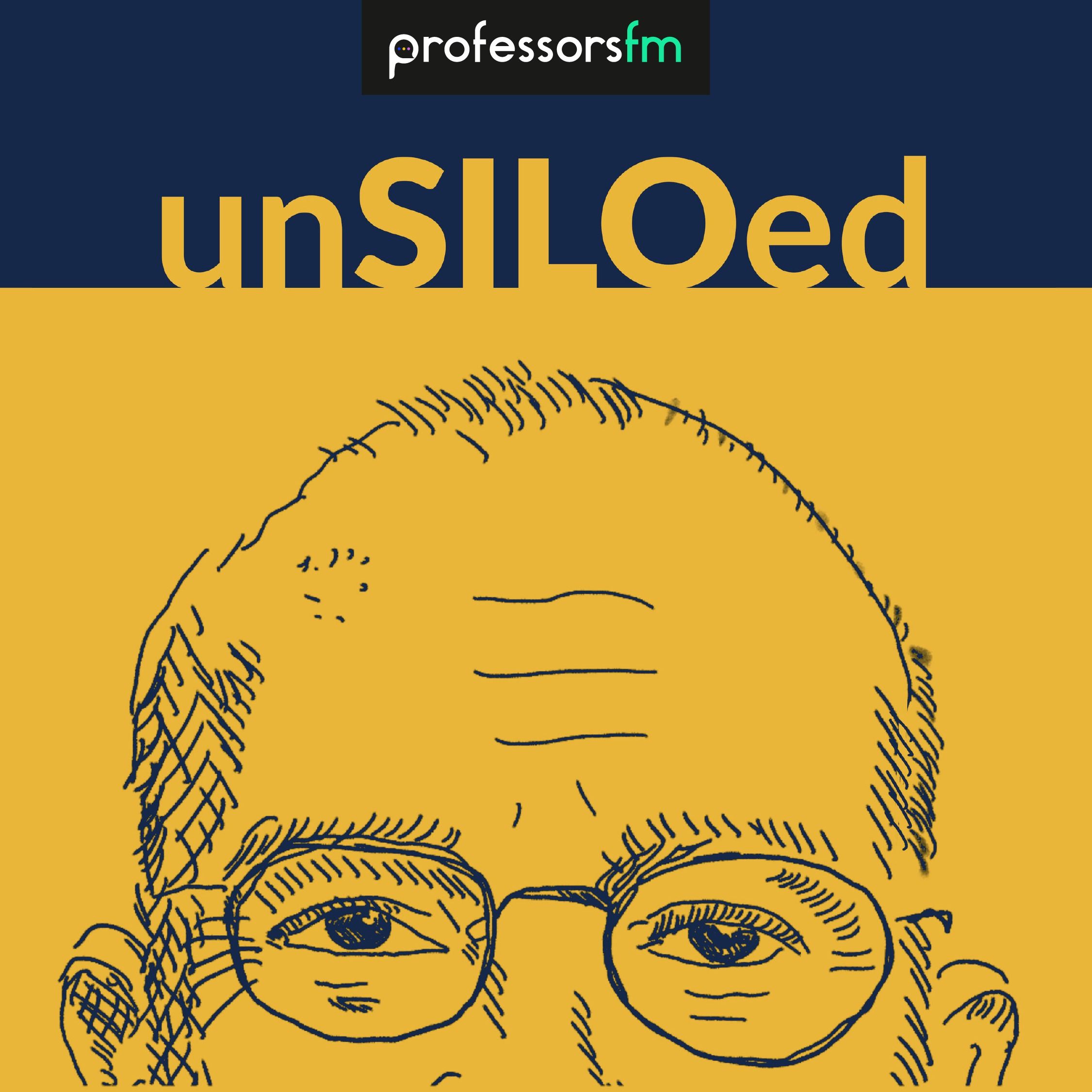

unSILOed with Greg LaBlanc
Greg La Blanc
unSILOed is a series of interdisciplinary conversations that inspire new ways of thinking about our world. Our goal is to build a community of lifelong learners addicted to curiosity and the pursuit of insight about themselves and the world around them.*unSILOed Podcast is produced by University FM.*
Episodes
Mentioned books

8 snips
Jul 8, 2024 • 51min
437. Aligning Data Science and Machine Learning for Business Success feat. Eric Siegel
Eric Siegel, machine learning expert, discusses bridging technical expertise with business needs. He highlights challenges in deploying ML projects, emphasizing collaboration for success. The conversation explores cost analysis, managing buy-in, and utilizing ML for business improvement. Strategies for executives' upskilling are also covered.

Jul 3, 2024 • 1h 3min
436. What the History of Economic Growth Says About the Future of Work with Daniel Susskind
Economics professor Daniel Susskind and Greg LeBlanc dive into the history of economic growth, the limitations of GDP, the impact of technology on work, and the need to redefine work's value in an automated world.

Jul 1, 2024 • 45min
435. What the Past Can Tell Us About Our Climate Future with Brian Fagan
Anthropology professor Brian Fagan discusses how civilizations historically adapted to climate change, the role of climate in the rise and fall of societies, and the importance of learning from the past to tackle future climate challenges. They explore ancient fishing artifacts, meteorological records in ancient societies, and the impact of climate change on human ingenuity and societal structures across different civilizations.

Jun 26, 2024 • 44min
434. The Critical Role of Marriage in Societal Well-Being feat. Brad Wilcox
Brad Wilcox, a sociology professor and director of the National Marriage Project, discusses the importance of marriage in societal well-being. They explore the impact of shifting societal norms on marriage decisions, the soulmate myth, gender roles, and the benefits of strong marriages. The conversation delves into the significance of extended family involvement, the challenges facing marriage in modern society, and the need to educate elites on the benefits of marriage for overall societal well-being.

Jun 21, 2024 • 52min
433. Overcoming Biophobia with David Barash
Emeritus professor David Barash discusses the resistance in social sciences to studying human nature, violence, sex differences, and the risks of nuclear deterrence. The conversation also explores deception in animal communication and the intersection of literature with evolutionary wisdom.

Jun 19, 2024 • 43min
432. Balancing Life and Efficiency: An Optimization Deep Dive feat. Coco Krumme
Applied mathematician Coco Krumme and Greg LaBlanc explore the negative impacts of excessive optimization on essential human values and spontaneity. They discuss ethical trade-offs, the lessons from the COVID-19 pandemic, and question the fabric of modern living. The conversation delves into the pillars of optimization, the influence of corporations on personal life optimization, and the balancing act between efficiency and life in an optimization culture.

Jun 14, 2024 • 45min
431. Religion’s Hand in the Invention of Politics with Anna Maria Grzymala-Busse
Political science professor Anna Maria Grzymala-Busse discusses the role of religion in shaping politics, including religious authorities' power over rulers, the influence on taxation, and modern politics. They explore the unique relationship between religion and politics in the United States and the impact of religious diversity. Examining historical research and contemporary analysis, they emphasize the continuity of human nature in societal concepts.

Jun 5, 2024 • 1h 7min
430. How Darwinian Economics Could Explain Everything with Geoffrey Hodgson
Geoffrey Hodgson and Greg delve into how Darwinian economics can explain historical shifts, the evolution of legal and financial institutions, and why traditional economic theories fall short in complex social systems. They discuss the theory of firms, the rapid evolution of institutions, and the impact of behavioral economics on traditional models.

Jun 3, 2024 • 36min
429. The Science Behind Animal Hijinks Understanding Play as Nature's Classroom feat. David Toomey
David Toomey, Professor and Co-Director of the PWTC Program at the University, discusses the evolutionary parallels between improv and life's unpredictability. He explores the broader implications of play, challenging the separation of creation and judgment, and its profound impact on self and the world.

May 31, 2024 • 58min
428. The Secrets of Constitution-Writing with Linda Colley
Linda Colley, history professor, and author discuss how constitutions borrowed from each other, the evolution of their purpose, and Britain's influence. They delve into historical context, global adoption, Ramahan Roy's vision for India, Latin American constitutions, and Brexit's impact on British identity.


